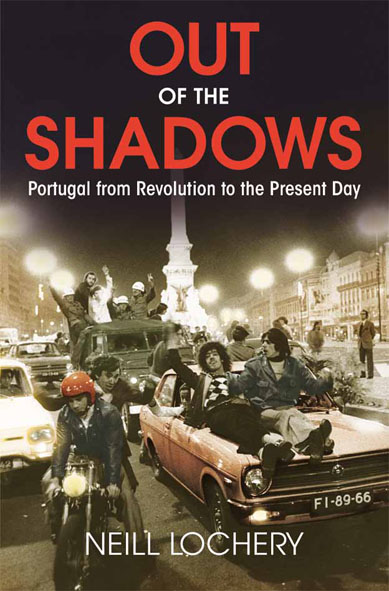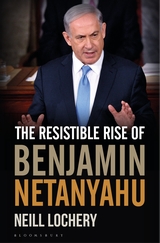
Following on from his international bestselling book on the history of the Portuguese capital, Lisbon, during World War II, Neill recounts the history of Brazil in his latest book, Brazil: Fortunes of War, World War II and the Making of Modern Brazil, published by Perseus Books (Basic Books), United States, in June 2014.
About Brazil: Fortunes of War, World War II and the Making of Modern Brazil
Prior to the outbreak of WWII, central Rio de Janeiro was a beautiful, exotic, and a slightly chaotic off-the-beaten-track location for the local super-rich and internationals seeking adventure. The city’s world famous beaches and five star hotels were rumoured haunts of diamond smugglers and international rogues of all trades.
‘Rio: at the end of civilisation, as we know it’ claimed the American movie producer, Orson Welles as he set out for the Brazilian capital in 1942 to make the World War II Allied propaganda film ‘It’s All True’ - a project that would eventually prove to be the ruin of his Hollywood career.
Hollywood’s simplistic take on the Brazilian capital during WWII – whether that meant dancers in the street, or Nazis in the bars – clouded the very real, complex and exciting story of a city that was vital to both sides in the war.
Rio de Janeiro during WWII was the scene of almost constant political double-dealing as Brazil’s leaders sought to cash in on the country’s strategic importance to all the belligerents. The huge wealth, and new infrastructure, that WWII brought Brazil transformed the nation.
Brazil’s leaders shifted from early extensive trade links with both the Germans and the Americans towards becoming a major political and economic ally of the United States. The culmination of this relationship came in 1942 when Brazil changed from being a neutral power to joining the Allied cause and declared war on the Axis powers. In return, President Roosevelt singled Brazil out for hugely favourable trade status and helped develop an industrial and transport infrastructure that led to the birth of modern Brazil.
Brazil: Fortunes of War, World War II and the Making of Modern Brazil, tells the story of how Brazil’s autocratic leadership guided the country through WWII with the aims of both developing Brazil into a regional economic and political powerhouse and of announcing the country’s arrival on the world stage. Using a series of previously unpublished documents only recently released in the archives in Brazil and in Portugal alongside comprehensive archival research in the United States and Britain, Neill Lochery presents a new perspective and comprehensive narrative on World War II and modern Brazilian history.
For more information, international rights or media enquires, please go to Contact >>
Press Acclaim
"A revealing political history...Lochery delivers a vivid picture of the Byzantine mid 20th-century politics of this increasingly important yet chronically overlooked nation."
Publishers Weekly - Pre-Publication Review (March 2014)
"Well-focused….Colorful personalities and tricky maneuvers make for a lively drama."
Kirkus Review - Pre-Publication Review (May 2014)
"[Lochery] has the merit of articulating a narrative of literary quality and fast pace, combining convincing reconstruction of the scenes of diplomatic intrigue and little remembered episodes....the outside view of Neill Lochery helps us understand [Brazil] more clearly."
Luciano Trigo, Globo (Brazil)
"A well-written account of Brazil’s experience of World War II....Lochery gets mid-20th century Brazil, in all its contradictions and ambivalences, and also Vargas. Lochery deftly portrays both major and minor characters in his story. The result is a book that is both good history - political, diplomatic and military - and a good read."
Peter Winn, Latin American history at Tufts University
"Lochery writes with an eye for detail, putting readers in the Copacabana and on the beaches of Rio as well as the smoke-filled conferences were deals where made."
Express Milwaukee (US)














